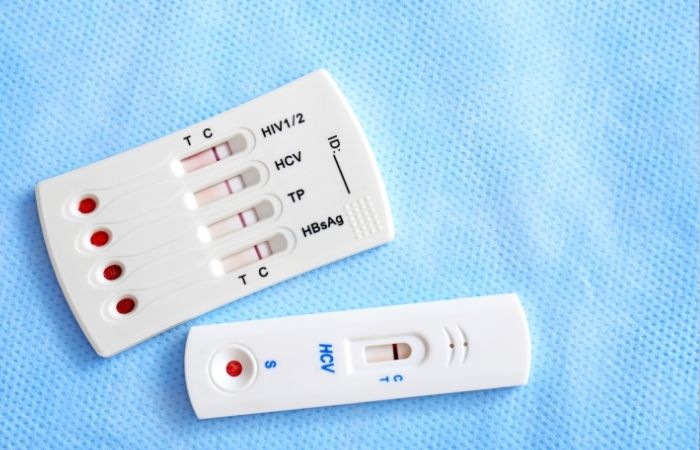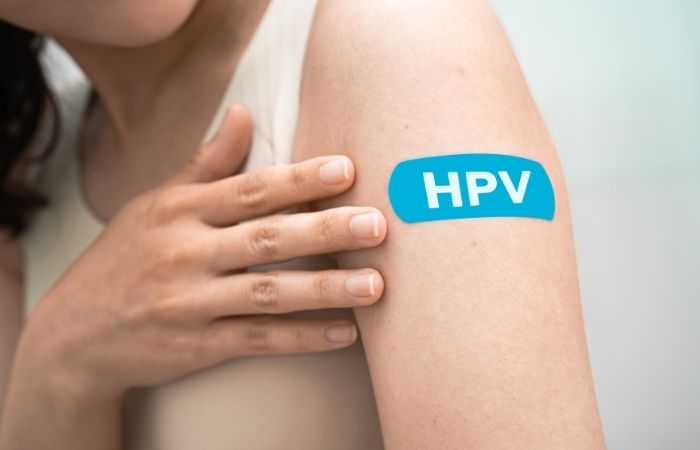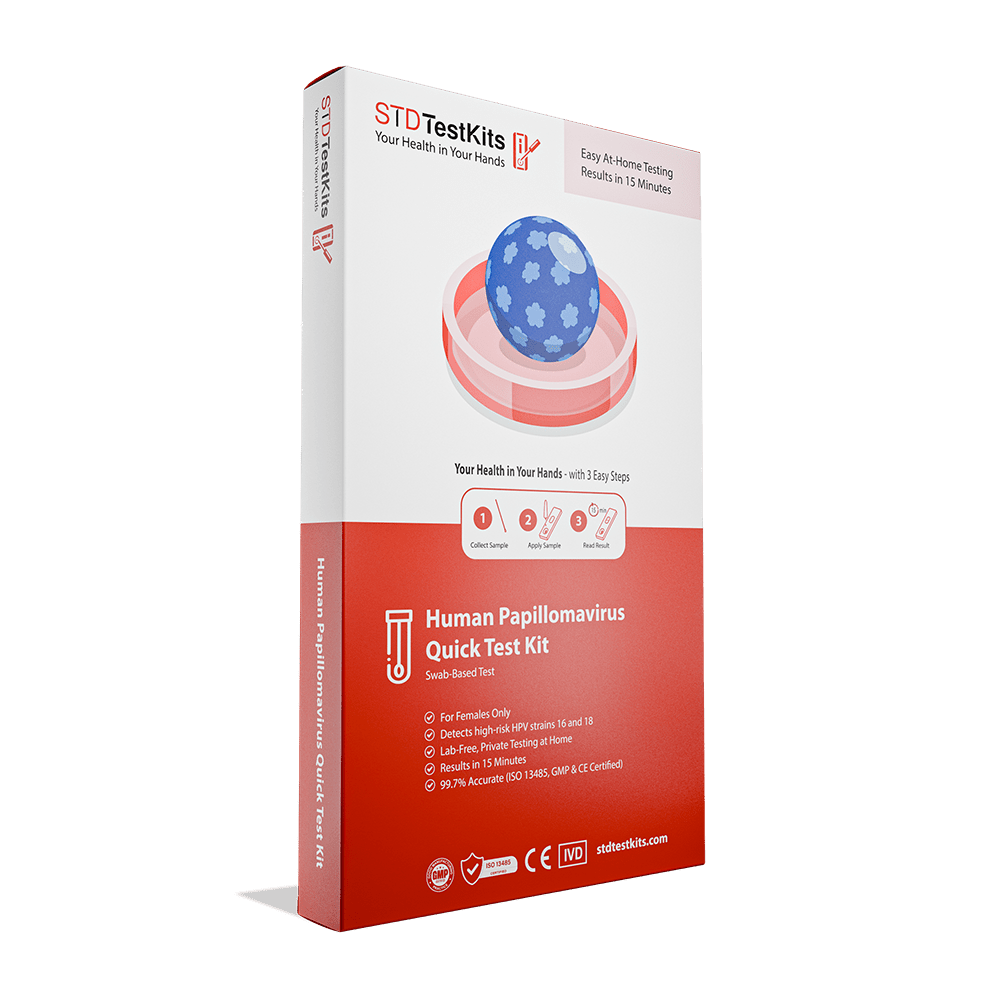Normalize It in the Group Chat: STD Testing Is a Love Language
Quick Answer: Testing negative for STDs doesn’t mean you’re immune. Vaccines like those for HPV, Hepatitis B, and Hepatitis A offer critical protection that testing can’t provide. Most adults are missing at least one of them.
This Is Where Most People Get It Wrong
There’s a huge difference between being negative and being protected. STD tests tell you what you don’t have right now. Vaccines shield you from what you might get next. And yet, so many people walk away from a clean test thinking they’re good to go for life.
In reality, most home test kits and even many clinic panels don’t test for everything, and they definitely don’t make you immune. That’s not their job. But nobody really explains that. So unless you’ve had a doctor talk you through your vaccine history, and let’s be real, most of us haven’t, you’re probably missing some key protections.
We’re not just talking rare infections either. We’re talking about some of the most common and preventable STDs on the planet. The ones that can cause lifelong issues even when symptoms are silent. The ones that you might have assumed were already handled.

People are also reading: STD or Skin Irritation? What Red Spots on Your Vagina Really Mean
Let’s Break This Down: What Vaccines Actually Exist for STDs?
A lot of people don't know this, but some STDs can be vaccinated against. Not all of them, but the ones that do? They do work. They have decades of research behind them and have saved many lives by stopping serious problems like cancer, liver damage, and long-term infections.
Here’s what’s currently available in the U.S., and who should be paying attention:
Figure 1. STD-related vaccines and who they're recommended for according to CDC guidelines.
So why haven’t you heard more about these? Honestly? Because adult vaccination is a mess. There’s no universal system that checks your history or pings you when you’re overdue. You have to ask. You have to dig. And sometimes, you have to correct your doctor.
“I Thought I Got All My Shots as a Kid,” Let’s Talk About That
It’s a fair assumption. Most of us got our pediatric vaccines, maybe a tetanus booster, and figured we were good unless we traveled or got pregnant. But that childhood shot card? It didn’t cover everything. And some of the most important STD vaccines weren’t available, or recommended, until recently.
The HPV vaccine, for example, only became standard for boys in the U.S. around 2011. Before that, it was mainly pushed for girls, and even then, not consistently. If you were a teen in the 2000s, chances are high you missed it altogether unless your parents were unusually on top of sexual health prevention.
As for Hepatitis B? Yes, it’s technically part of the childhood schedule, but millions of people born before the 1990s never got it. If you were born before universal infant Hep B vaccination rolled out (around 1991 in the U.S.), you’re probably unvaccinated unless you received it later for work, travel, or other reasons.
And Hepatitis A? It’s given to kids now, but that wasn’t the norm until the early 2000s. Adults who weren’t in specific risk groups, like gay men, people who use drugs, or those who travel to high-incidence countries, almost never got it.
Let’s Get Personal: What It Looks Like to Be “Immune”
Alondra, 39, works in healthcare. She’d never had any symptoms, always used protection, and assumed she was fully vaccinated. It wasn’t until a workplace screening revealed she had no antibodies for Hepatitis B that she realized: she’d slipped through the cracks. One month later, she started the 3-dose series, because testing negative didn’t mean she was protected. It meant she was lucky. So far.
This is the reality for so many adults. If no one ever offered you the vaccine, and you never got exposed, you may think you’re covered when you’re not. The only way to know for sure? Ask for a titer test (a blood test that checks your immunity). Or skip straight to the vaccine series, it’s safe to get even if you had partial protection before.
When you’re truly immune, you’re not just hoping you don’t get exposed, you’re protected even if you are. That’s the difference.
What Testing Can’t Do (And Why Vaccines Matter Anyway)
Testing is critical. It’s the first step in taking your sexual health seriously. But there are limits, big ones. Many common STD test kits don’t check for HPV, Hepatitis A, or Hepatitis B at all. Even lab tests often require you to ask specifically for those.
Plus, testing only captures what’s happening now. If you’re in the incubation window or caught something yesterday, a test might miss it. That’s why prevention needs to be layered: test, treat, vaccinate, repeat. No single tool is enough on its own.
Vaccines close the loop. They take you from “I hope I’m still negative” to “I know I’m protected.” It’s not about being invincible. It’s about stacking the odds in your favor.
If you’ve ever thought, “Well, I got tested, so I must be fine,”, this is your sign to go one step further. Your immune system deserves the boost. Your future self will thank you.
“I’m Too Old for That Shot”, And Other Lies We’ve Been Told
If there’s one myth that keeps coming up in DMs, late-night Googles, and clinic whispers, it’s this one: “I missed my window. It’s too late now.” That idea is not just wrong, it’s dangerous.
The HPV vaccine
And if you’re over 45? You may not be eligible for the vaccine, but you are eligible to know what you’ve been exposed to. A Pap smear (for people with cervixes), an anal HPV test (in high-risk groups), or even a risk consult can still be game-changing.
For Hepatitis B, the age window is even wider. The CDC now recommends the vaccine for all adults 19–59, and even those over 60 if they have any risk factors. That’s almost everyone, when you think about how Hep B spreads: sex, shared razors, body art, childbirth, or even close living quarters. Yet the adult uptake rate remains embarrassingly low.
Don’t let a birthdate decide your health. Let evidence, risk, and prevention guide you instead.

People are also reading: Is That Toy Safe? What You Risk When Couples Share Sex Toys
“I’m in a Monogamous Relationship, Why Would I Need a Vaccine?”
This one hits a lot of people unexpectedly. You’ve been with the same partner for years. You both tested before getting together. You don’t cheat. It makes sense to feel like vaccination is overkill.
But here’s what many don’t realize: most people enter relationships without knowing if they’re already carrying certain infections. HPV, in particular, can lie dormant for years. A person can unknowingly pass it to a partner long after a “clean” test. And if you’re not vaccinated, you’ve got no firewall.
Case in point: Ravi, 42, had been married for 11 years when his partner developed cervical abnormalities from HPV. They both panicked, then grieved, when they realized they had never talked about vaccines, because they assumed they were “safe.” That heartbreak could’ve been prevented with a few uncomfortable but empowering conversations.
Vaccination doesn’t mean you don’t trust your partner. It means you understand how time, biology, and past exposure don’t always follow relationship rules.
Timeline Check: How Long Does It Take to Be Protected?
So you’re ready to get vaccinated. Amazing. But how long before you’re actually protected?
Let’s break it down in simple terms:
Figure 2. Vaccine dosing schedules and immunity timelines.
Bottom line: you don’t walk out of the clinic fully shielded. But every dose gets you closer. And once you finish the series? You're in a totally different risk category, one that includes real, science-backed immunity.
Who Gets Left Out of Vaccine Conversations (And Why That Needs to Change)
Let’s be honest: not everyone is equally invited into conversations about prevention. Queer, trans, and nonbinary people often get skipped over, misgendered, or completely ignored in sexual health discussions. That silence puts lives at risk.
For example, anal HPV screening is recommended for men who have sex with men (MSM) and people living with HIV, but most clinics don’t offer it unless asked. And many trans people, especially those who’ve had gender-affirming surgery, aren’t given clear guidelines on how, when, or if they need the HPV vaccine at all.
Vaccination is not a “one-size-fits-men-and-women” issue. It's about behaviors, anatomy, access, and real life. That means care teams need to do better, and so does the entire public health system.
If you're part of a marginalized community, you might have to be your own advocate. But you shouldn’t have to be alone. Start by asking: “Which vaccines protect me based on the kind of sex I have?” If your provider can’t answer that, find one who can.
Don’t Just Test, Level Up Your Protection
By now, you know that testing is only half the story. It tells you what’s happening today. But vaccines? They protect your tomorrows. You don’t have to choose between the two. In fact, you shouldn’t.
Start with an at-home combo test kit to check your current status. Use that moment, negative or not, as a springboard to talk to your doctor about HPV, Hepatitis A, and Hepatitis B vaccines. Testing tells you where you are. Vaccination tells your body where not to go next.
This isn’t about being perfect. It’s about being prepared. Because the smartest kind of sexual health plan includes both testing and prevention, and no one else gets to define what protection looks like for you.
FAQs
1. Are there really vaccines for STDs?
Yep, three big ones. HPV, Hepatitis B, and Hepatitis A. They don’t just reduce risk, they give you legit, immune-system-level protection. Most people only hear about them during childhood checkups or travel prep, so it’s easy to miss the memo that adults can (and should) get them too.
2. Why would I need a vaccine if I already test regularly?
Because testing is a snapshot. It tells you what’s happening right now, not what could happen next. Vaccines work like a security system. You install them before something breaks in. Testing is reactive. Vaccination is proactive. Both matter. They’re just playing different positions on your sexual health team.
3. Can I still get the HPV shot if I’ve had sex? Or even an STD?
Absolutely. Sexually active doesn’t mean “too late.” Most people haven’t been exposed to every HPV strain the vaccine covers, especially the cancer-causing ones. Even if you’ve had an abnormal Pap or genital warts in the past, you can still get protected against future strains. It’s not all or nothing. Every dose helps.
4. I’m in my 30s and never got the Hep B vaccine. Should I bother?
Yes. Like, yesterday. Hep B is sneaky, it spreads through sex, shared razors, body piercings, even close contact in some cases. And if you weren’t vaccinated as a kid (which many people over 30 weren’t), you’re still eligible. In fact, the CDC now recommends the Hep B vaccine for all adults under 60. No judgment, no delay, just do it.
5. Do I need these vaccines if I’m only sleeping with one person?
Short answer? Probably yes. Long answer? Even monogamy has history. Your partner may have had previous partners. You may have. HPV can lie dormant for years, and Hepatitis B doesn’t always show symptoms. Vaccinating doesn’t mean you don’t trust each other, it means you’re building safety, together.
6. I’m queer/nonbinary/trans. Do these vaccines apply to me?
More than you’ve probably been told. Queer and trans communities often face higher risk for certain STDs, yet get left out of vaccine outreach. If you’ve got skin, genitals, or mucous membranes (read: you’re human), HPV applies to you. Same with Hep A and B. The system might’ve missed you, but that doesn’t mean you don’t deserve full protection. You absolutely do.
7. How do I know if I already got these vaccines?
Best bet? Ask your doctor to check your records or run a blood test called a “titer.” That’ll show whether you have immunity. If it’s unclear, or you just want to skip the guesswork, you can safely start the vaccine series now. There’s no harm in doubling up if you’re already covered. It’s just a backup plan your body won’t mind.
8. Why isn’t this standard info in every STD testing kit?
Because healthcare systems still treat adult vaccination like an optional extra, and that’s the problem. Most STD test kits are built to detect, not prevent. They’ll tell you what you might have, but they won’t stop it from showing up in the first place. That’s what vaccines do. It’s not that anyone’s hiding the info, it just isn’t front and center like it should be.
9. Can I just walk into a clinic and ask for these?
Usually, yes. Public health clinics, Planned Parenthood, and even some pharmacies offer adult vaccines. They may ask your age, insurance, or risk factors, but you don’t need a long explanation. Just say, “Hey, I’m catching up on my HPV/Hep A/Hep B vaccines, can you help me get started?” If they can’t, they’ll tell you where to go.
10. What if I’m over 45 and missed the HPV vaccine window?
You might not be eligible for the shot anymore, but that doesn’t mean you’re out of options. Ask your provider about cancer screenings like Pap smears or anal cytology (depending on your anatomy and risk). And keep the convo going with younger folks in your life, your story could help someone else decide to get protected sooner.

People are also reading: TikTok Said It’s Fine… Now I Have Chlamydia
You've Got One Body, Make It a Vaccinated One
This isn’t about fear. It’s about freedom. The kind that comes from knowing your health isn’t just hanging by a test result or someone else’s honesty. Vaccines are protection you carry with you, silently, powerfully, and long after the clinic visit ends.
If you’ve tested recently, take the next step. Look at your shot history. Ask the awkward questions. And fill in the blanks before they become regrets. Whether you're 22, 42, or pushing 60, if you’re still sexually active, you deserve to be covered.
Explore at-home test kits, get the data, then get the defense. It’s your body. You decide how protected it gets to be.
How We Sourced This Article: We combined current guidance from leading medical organizations with peer-reviewed research and lived-experience reporting to make this guide practical, compassionate, and accurate. In total, around fifteen references informed the writing; below, we’ve highlighted some of the most relevant and reader-friendly sources.
Sources
1. How to Prevent STIs – Vaccines Included | CDC
2. HPV Vaccination Recommendations | CDC
3. Hepatitis B Vaccine: Who & Why | CDC
4. Vaccines That Can Prevent STIs | American Sexual Health Association
5. Mpox (formerly monkeypox) Vaccination Guidance | CDC
6. Development of Vaccines Against the Sexually Transmitted Infections | NCBI PMC
About the Author
Dr. F. David, MD is a board-certified infectious disease specialist who works to stop, diagnose, and treat STIs. He combines a no-nonsense, sex-positive approach with clinical accuracy and is dedicated to making his work available to more people in both urban and off-grid settings.
Reviewed by: J. Nguyen, RN, MPH | Last medically reviewed: October 2025
This article is for informational purposes and does not replace medical advice.







